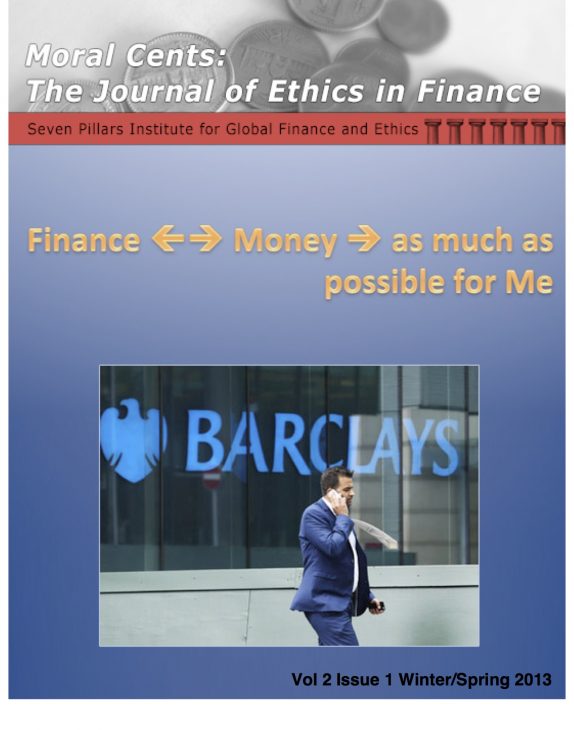Moral Cents: The Journal of Ethics in Finance (Winter/Spring 2013)

We are close to the five-year anniversary of the global financial crisis, if we take Lehman’s bankruptcy as the unfortunate beginning. Trillions of dollars were lost at the low point of world financial collapse. Subsequently, trillions of words (I add 625 more today) seem to have been written on this, the first global financial catastrophe of the twenty first century. What happened, why did it happen, who caused it to happen, what can we do so it never happens again? We think we know what happened, and why. The left and the right spread blame around to their respective bogeymen and we dither about preventive measures against future similar crises.
In this issue of Moral Cents we focus on pertinent problems, policies, and reactions spawned by the financial crisis: (1) The persistent debt crisis (2) Quantitative easing (3) The flash crash (4) Regulations (5) Regulations (6) Questioning current economic theory. The articles on each of the six topics have their own particular approach to the corresponding issues.
Cristian Dimitriu writes on odious debt, when states can legitimately repudiate their sovereign debts. Thomas Aden attempts to analyze the outcomes from four years of quantitative easing. Laure Madonna tells us about the ethics of High Frequency Trading after the Flash Crash. Tyler Dumler reviews both the Volker Rule aimed at preventing proprietary trading at banks and the Wheatley Report on LIBOR manipulation. Travis Strawn reviews A History of Homo Economicus: The Nature of Moral in Economic History by William Dixon and David Wilson.
Moral Cents: The Journal of Ethics in Finance is published by
Seven Pillars Institute for Global Finance and Ethics
ISSN 2326-5663
Photo: Reuters/Olivia Harris
